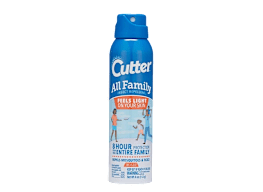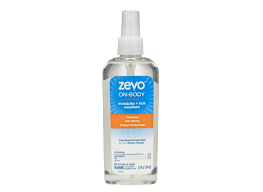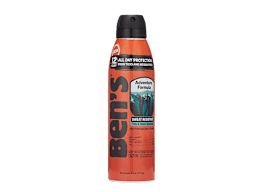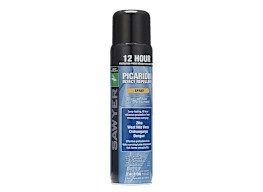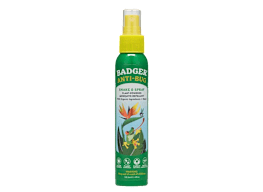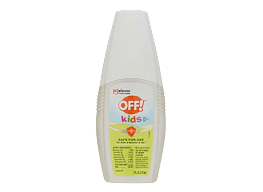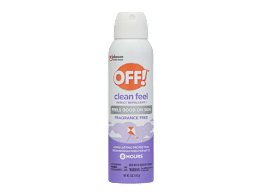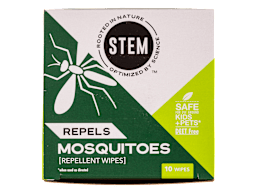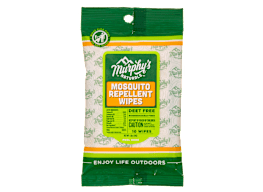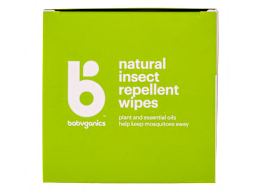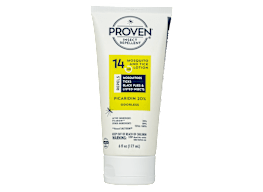The Problem With Homemade Mosquito Repellent
To protect yourself and your family from bites and bug-borne diseases, stick with products that have a proven track record of keeping pests away
When you shop through retailer links on our site, we may earn affiliate commissions. 100% of the fees we collect are used to support our nonprofit mission. Learn more.
Making your own insect repellent sounds so simple: Just whip up a mixture of apple cider vinegar or witch hazel plus a few drops of some herby essential oils—no deet required.
But there aren’t a lot of studies assessing homemade insect repellent recipes. So I reached out to several experts to ask: Is making your own insect repellent a good idea?
“My answer is no,” says Edmund J. Norris, PhD, a research entomologist with the USDA Agricultural Research Service’s Center for Medical, Agricultural, and Veterinary Entomology. “It’s very likely that they’ll end up mixing something together that they think will work, but won’t actually provide any substantial protection from mosquitoes and ticks.”
Are Homemade Mosquito Repellents Effective?
Some of them could be—at least a little bit—but their efficacy varies. And based on the available research, none will perform as well as the best insect repellents available in stores.
For most commercial insect repellents, the EPA requires manufacturers to demonstrate that their products provide meaningful protection. Products that are registered with the EPA all contain one of just a handful of active ingredients that have been shown to be effective. These include the familiar gold standard, deet, but also a variety of other ingredients including picaridin, oil of lemon eucalyptus, IR3535, and p-Menthane-3,8-diol.
Still, some commercially available insect repellents aren’t registered with the EPA. The active ingredients of these “natural” repellents are essential oils like peppermint oil, or lemongrass oil, rosemary oil, eucalyptus oil, citronella oil, and more. The EPA considers these ingredients to pose minimal risk to human health in the concentrations in which they’re generally found in commercial products, and so does not require them to be tested for safety or efficacy before being sold in insect repellents. These are generally also the active ingredients you’ll find in recipes for homemade mosquito repellents.
Not every expert I spoke with was totally against the idea of going DIY. Hailey Luker, a PhD candidate at New Mexico State University who studies insect repellent ingredients and ways of testing new repellents, says that at least in theory, you might be able to mix up a DIY insect repellent that works—or works at least as well as some of the essential-oil-based commercial repellents.
In fact, she’s done so: She and several colleagues recently authored a study assessing the efficacy of 20 different plant essential oils against one species of mosquito and one species of tick. To test out the essential oils, the researchers mixed each of them into an organic, unscented lotion, such that the concentration of the essential oil in the mixture was 10 percent.
The study found that a few of the essential oils did provide some measure of repellency against both mosquitoes and ticks. In particular, clove oil, cinnamon oil, geraniol, and a chemical called 2-Phenylethl propionate (which is found in peanuts) provided the longest-lasting repellency against mosquitoes and ticks compared with the other oils tested in the experiment.
The most successful oils worked for over an hour—but not much longer than that. “We’ve found that about 2 hours is almost as good as you can get,” Luker says. By contrast, the top-rated commercial repellents in our ratings provide about 6 or 7 hours of protection. And in our tests, we’ve found results similar to those from studies by Luker and others: The natural insect repellents we’ve tested tend to work for no longer than 2 hours at most before mosquitoes start biting again.
Luker’s study highlights another problem with many DIY insect repellent recipes, she says, which is that it’s hard to know whether the essential oil you’ve chosen for your concoction will be effective. Peppermint oil and citronella oil, for instance, worked against mosquitoes for less than an hour. And, the researchers said, different studies have come to conflicting conclusions about which essential oils last slightly longer than others.
Luker also says that while her study used essential oils mixed into plain lotion, she hasn’t studied how mixing them with witch hazel or apple cider vinegar or other commonly prescribed ingredients for DIY repellents would affect how long these mixtures last.
Overall, the problem with plant essential oils as insect repellents is that they’re highly volatile—meaning that they evaporate quickly off of your skin. This quick evaporation is why they don’t last as long as more established ingredients like deet.
In short, there are a lot of unknowns when it comes to the efficacy of homemade insect repellents. Luker says that she wouldn’t advise using a DIY insect repellent if you’re living in or traveling to an area where mosquito- or tick-borne diseases are a risk.
Are Homemade Mosquito Repellents Safe?
It’s hard to say for sure. Although ingredients like clove oil and thyme oil sound harmless, essential oils still can pose risks. “Of course it might smell nice, but many plant essential oils are not intended for direct application on the skin,” Norris says. Risks include skin irritation, allergic reactions, and even chemical burns, he says.
Combining different ingredients is also a risky proposition, says Joel Coats, PhD, a distinguished professor emeritus of the department of entomology at Iowa State University. “Concentrations of components are crucial to efficacy but also the safety of the mixtures,” Coats says. “In DIY repellents there could be combinations of materials that have never been tested before.” That means you have little way to know what side effects they could cause.
Even for a single ingredient, its quality can vary widely, and there’s not an easy or reliable way for consumers to discern the quality of an essential oil. Luker says this was a challenge for her team in the research they conducted. “As we did the study we started considering how much variation there might be between the same essential oil depending on where it was extracted from, the condition of the plant, what part of the plant, the weather that they experienced the winter before,” and more, she says.
Other Insect Repellent Options
For trustworthy protection against the bites of mosquitoes and ticks, stick with EPA-registered insect repellents. Deet is safe when it’s used as directed, but if you’d still prefer not to use it, there are effective alternatives.
Consumer Reports has found that long-lasting protection can also be found by using bug sprays containing 20 percent picaridin or 30 percent oil of lemon eucalyptus. (Despite its confusing name, OLE is not an essential oil but a plant-based ingredient refined from material extracted from the lemon-scented gum tree.)
You can read more about your options for natural repellents. Here are some repellents that scored well in our tests; these will afford you better protection than going DIY.


